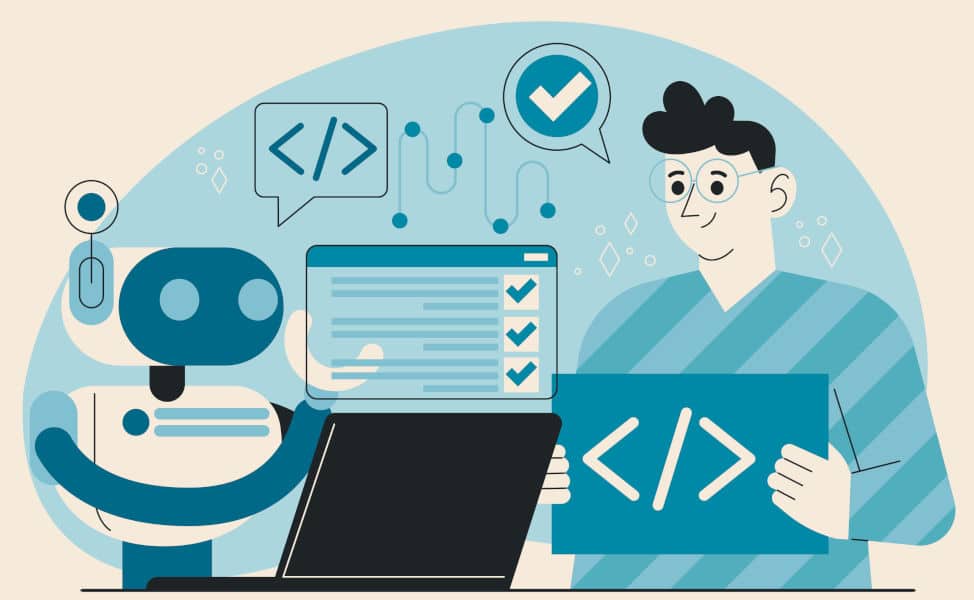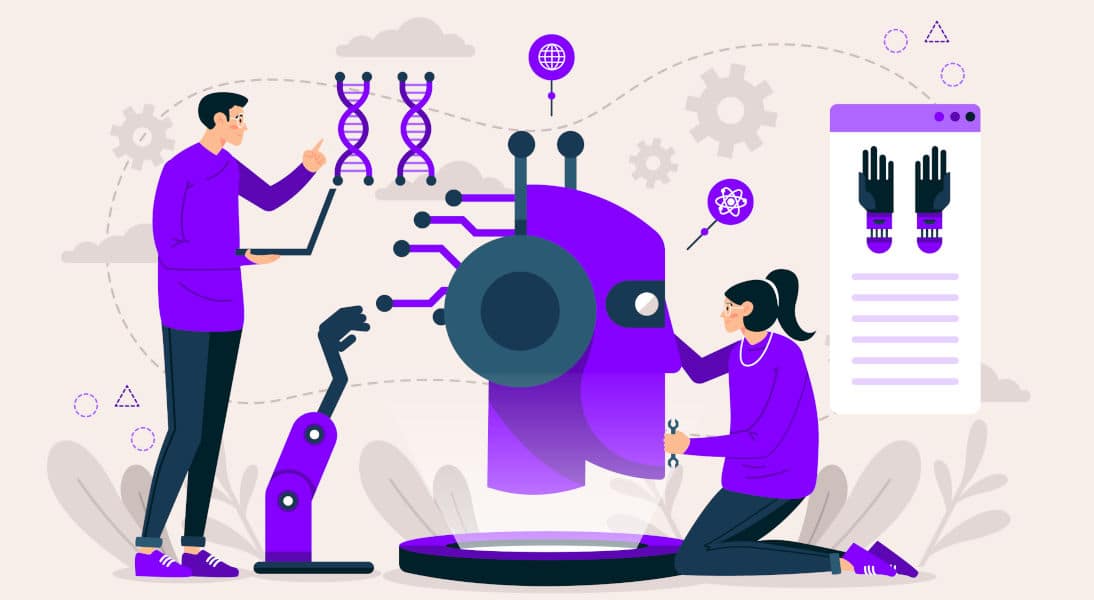Artificial intelligence is omnipresent in the news, and we might forget that for several years now, it has been at the forefront of many sectors: industry, health, entertainment... Those who exploit this technology in companies are artificial intelligence engineers or also called: AI Engineer. They take on the complex task of simulating human thought to help deal with ultra-concrete problems...
The job of an artificial intelligence engineer involves analyzing and extracting existing human knowledge and converting it into mathematical equations or models and algorithms capable of reproducing know-how. In fact, artificial intelligence is a skilful blend of mathematics and computer science.
The AI engineer’s first task is to identify :
- what data humans collect through observation or instruments ;
- what factors may signal the need to perform a particular action;
- what decisions are taken to resolve certain situations;
- how these decisions are implemented in the real world.
Once these points have been analyzed in detail, the AI engineer must apply himself to modeling them in such a way that they can be processed by a computer – sometimes also by a robot or, more rarely, by a computer chip dedicated to a task.
It is important to specify that artificial intelligence in business is not intended a priori to replace managers in a field, but to help them in their activity by helping to identify causes that would be difficult to perceive in the real world, because they involve so many factors.
This can lead to significant gains in productivity, as the problems to be solved are better circumscribed and dealt with.

What does an AI engineer do?
Information gathering
The first step in an AI engineer’s job is to gather data from specialists in a particular field. For example, those in charge of logistics, manufacturing, quality control…
This information may be available in the form of big data already stored and regularly exploited by managers, without however drawing the full extent of its possibilities.
Nevertheless, the AI engineer must be able to determine;
- What situations are encountered in everyday life?
- What methods are used to solve them?
- What is the hierarchy of information processed in terms of importance?
Prediction model code
From this crucible, the artificial intelligence engineer strives to develop a mathematical model that is as complete as possible in terms of the know-how involved.
He must then code it in an appropriate programming language, usually Python. He must also develop tools to help him visualize the effectiveness of the model thus defined.
Examples of problems that AI engineers may have to solve
Here are some examples of problems an AI engineer might encounter:
- Recommendation: recommending purchases to customers on a Web application based on their current and past shopping baskets,
- Sentiment analysis: identifying changes in customers’ opinions of various products or services,
- Pattern recognition: analysis of a still or moving image to determine the presence of an exact element – a vehicle, a type of rock, etc.
- Logistics: optimization of goods transport and delivery routes.
- Medical: image-based diagnosis of potential illnesses.
- Cybersecurity: Detect potential vulnerabilities in a computer network,
- Predictive maintenance: use AI to predict when certain machines will need maintenance.
Identify dangerous situations in a field activity and prevent them using AI,
etc.

What qualities do you need?
It’s important for an artificial intelligence engineer to have an affection for mathematics, coupled with an ability to use it in an advanced way. Likewise, he or she must be skilled in computer programming.
However, AI engineers must also have the ability to take an interest in a wide variety of fields, and a willingness to learn in many different ways.
They also need to be sociable, as they’ll need to get others to explain what they’re doing, which may require a good deal of patience. In fact, this is one of the attractions of this profession, as the AI engineer is bound to discover a wide variety of activities, and talk to the corresponding specialists.
It goes without saying that they must be extremely rigorous, as they need to embrace specific problems as best they can, so as to be able to transpose them into the most accurate mathematical models possible.
Sometimes, the collaboration of several artificial intelligence experts will be required to formulate the right model to solve a complex problem. Finding this solution can sometimes take weeks or months, so perseverance is another expected quality. When the solution is finally found and works in the real world, the satisfaction is all the greater.
What training do you need to become an AI engineer?
If you want to become an artificial intelligence engineer, there are many options open to you.
- University: Paris-Saclay, University of Toulouse, Pierre et Marie Curie…
- Engineering schools: Polytechnique, Telecom Paris Tech, CentraleSupélec, ENS Paris Saclay…
- Specialized training: DataScientest offers this type of training as a sandwich course, enabling you to gain professional experience during your studies.
As this field is constantly evolving, it’s a good idea to reinforce your skills by regularly updating your knowledge, which can be acquired via online courses.











